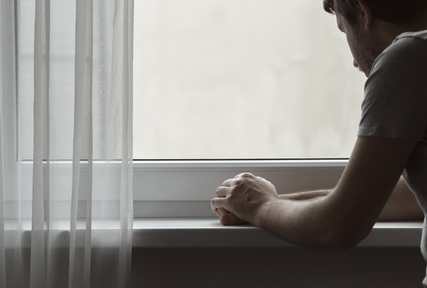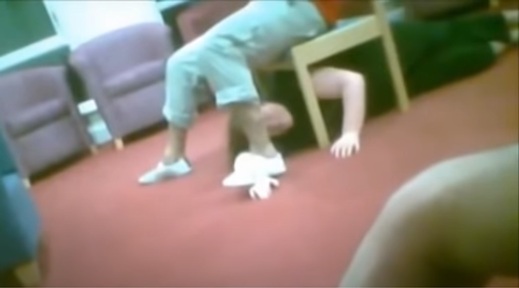Charities and families call on government to overhaul care system 10 years on from Winterbourne scandal
Charities and families of patients who were institutionalised in Winterbourne View Hospital near Hambrook, South Gloucestershire, are calling on the government to reduce assessment and treatment units (ATU’s) for adults with learning disabilities.

During a BBC Panorama undercover investigation programme, filmed in 2011 at Winterbourne View Hospital, viewers were shocked to see footage of disabled people repeatedly being pinned down, slapped, dragged into showers while fully clothed, taunted and teased. The private hospital, now closed, saw 11 staff members charged with criminal offences and six with prison sentences.
Despite calls to the government to see the number of assessment and treatment units reduced and more funding for social services and residential care, research by charities Mencap and the Challenging Behaviour Foundation (CBF) has found at least 2,040 people are still locked away in mental health hospitals, often many miles from home.
Edel Harris, chief executive of the learning disability charity Mencap, said: “It is unforgivable that over the last decade the government has broken promise after promise which has left people with a learning disability and/or autism stuck living in assessment and treatment units when they should be living at home. For people and their families to have been through such horrors and for so little to have changed is deplorable.
“There has been abuse scandal after abuse scandal in mental health hospitals up and down the country, and it is highly likely that abuse still occurs in many of these institutions today. With restrictive and inhumane treatment reportedly being used against people once every 12 minutes, the government really needs to address the urgency of this situation.
“We cannot tolerate a situation where more people are locked up simply because they cannot access appropriate support in their community. It’s widely known that improving access to early intervention and personalised support in many cases can be the solution. The Prime Minister must listen to the families of those who were at Winterbourne View and act now before more people are abused and lives destroyed.”
'10 years after the abuse...care has not been transformed'
Mencap and the CBF have also revealed there have been at least 102,010 recorded reports of restrictive practices, like physical restraint, chemical cosh and solitary confinement, since October 2018 when figures were first reported.
Vivien Cooper, chief executive of the CBF, says: “The messages from the families who have shared their experiences 10 years after the abuse at Winterbourne View was exposed are stark and clear – however you look at it, care has not been transformed.
“Think what can be achieved in 10 years, then consider how little has changed for so many people with learning disabilities and autistic people whose behaviour challenges. I hope that those in positions of power and influence, those who have high status and whose job it is to deliver the transformation of care, read these accounts and reflect on the devastating and lasting impact inappropriate admission has on children, adults and families – and how that impact and the consequences continue, year in, year out.
“We know what to do, what works, and how to do it – we need strong leadership, and people with the will, skills and determination to make this a priority and take action.”
'Decision-makers and commissioners condemn our loved ones to a life of misery'

Meanwhile, in an open letter to the Prime Minister, the families of patients who stayed at Winterbourne View Hospital say: ‘Countless other families have experienced, and continue to experience, the same trauma at the hands of the system.
‘For the sake of our family members, and all others facing this system today, the change must happen.
‘There must be an end to the inhumanity our loved ones have faced, once and for all.’
Ann Early, whose son Simon, now 47, was at Winterbourne View hospital between 2010-2011, says: “When there was a shockwave of horror after the abuse of our sons and daughters was aired on national TV, we naively hoped the promises made by government would change the system forever. Yet here we are 10 years on still having to fight.
“The failure to extricate people entrenched within the system is pathetic, but it is the failure to stop others being pulled in that’s even worse. The dangers have been exposed, the failures noted, the appalling damage catalogued but still decision-makers and commissioners condemn our loved ones to a life of misery.
“Still other settings like Winterbourne Views are built and their beds filled. There should never be the opportunity for another Winterbourne View to be created under the guise of providing care.”
'Thousands of people remain in these types of institutions'
The Voluntary Organisations Disability Group (VODG), is also calling on the government to put an end to this “human rights scandal” and significantly reduce its reliance on institutional ATU's.
Dr Rhidian Hughes, chief executive of VODG, said: “Ten years on and there are still more than 2,000 people with a learning disability and /or autism detained in ATUs and the all-to-regular exposes about abusive practices demonstrates how little progress has been made. This is simply unacceptable.
“Thousands of people remain in these types of institutions, and for some people this has been over many years, is a national scandal.
"In what other circumstances can a British citizen be detained indefinitely by the state, without a trial?
"Secluded institutional care has never been appropriate, and there are community-based solutions that enable people to draw on care and support to improve outcomes and experiences.
“If the government is truly committed to protecting and transforming the lives of people who are in the most vulnerable of circumstances, then it must.”
Latest News
 29-Jul-24
Dementia Bus gives carehome.co.uk staff insight into life with dementia
29-Jul-24
Dementia Bus gives carehome.co.uk staff insight into life with dementia
 01-Mar-24
Find out the top care homes in 2024
01-Mar-24
Find out the top care homes in 2024
 21-Mar-23
UK's top care homes in 2023 revealed
21-Mar-23
UK's top care homes in 2023 revealed
 03-Jan-23
carehome.co.uk launches free care helpline
03-Jan-23
carehome.co.uk launches free care helpline
 13-Dec-22
5 mins with Emily Whitehurst, chief operating officer for Constantia Healthcare
13-Dec-22
5 mins with Emily Whitehurst, chief operating officer for Constantia Healthcare